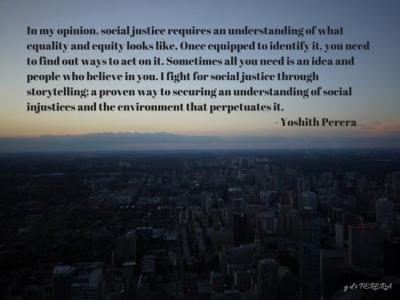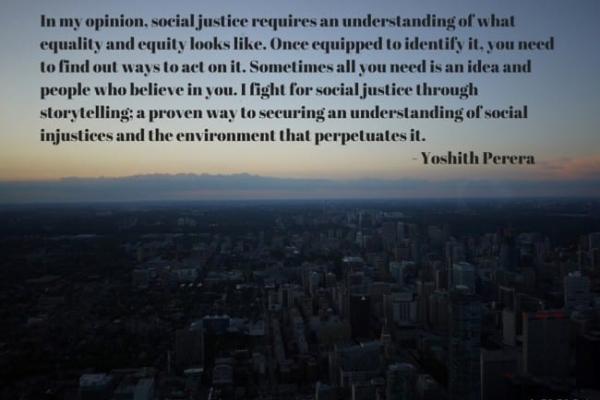February 20th marked the 10th annual Social Justice Day! From day one, Partners In Health has taken a social justice approach to global health. As Jon Shaffer, Senior Strategist for PIH Engage puts it: “For PIH Co-founder Dr. Paul Farmer, social justice means providing a preferential option for the poor in health care. For us, this means that the poor and their interests should always be the top priority in all our efforts. We take this approach because it is a moral imperative, but also because it makes good epidemiological sense. Those who live in the throes of extreme poverty bear the brunt of ill health and preventable disease.”
That’s why we, the PIHC WG-ES, continue our momentum to fight for social justice! We asked our team members, “How do you fight for social justice?” and “What does social justice mean to you in the context of global health?” Our team tapped into their personal experiences, stories, and reflections, and this is what they surprised us with:
“Social justice in the context of global health to me, is the fight for equal access to preferential healthcare options for every individual on Earth. It may seem like an idealistic goal, but it is entirely necessary and crucial. I fight for social justice by educating myself regarding the issues and barriers surrounding health equity, spreading the word, and becoming involved with organizations, like PIH, who strive to make this goal a reality. When I enter the work force, I hope to pursue a career in this field, which will allow me to bring the best healthcare options to more people each day.” — Dilani Logan

“Thousands of languages are heard all over the globe. Social justice means listening to the voices that aren’t given a chance to speak.” — Michelle Amri
“To me, fighting for social justice means finding solutions that treat underlying issues to a problem. For example, in a poverty stricken area in Nicaragua, a service trip offered to help build large concrete outdoor ovens for low-income families. The families could then use these ovens to bake and sell bread in order to generate a sustainable source of income. Finding ways to empower people to be contributing members of society is one way to fight for social justice.” — Samara Strub
“I fight for social justice by engaging in conversations with my peers to encourage them to think about issues in terms of equality and equity. By starting discussions with individuals I meet, I believe we are encouraging change from the ground up. I feel that by being aware of issues and forming your own opinions is crucial to achieving a society that has equal opportunities and privileges for all. It makes issues that initially seem daunting more personal and more approachable.” — Clara Tam
Want to share your social justice story? Add your voice to the ongoing conversation of social justice, health equity, and health as a human right by tweeting to @PIH_Canada.


